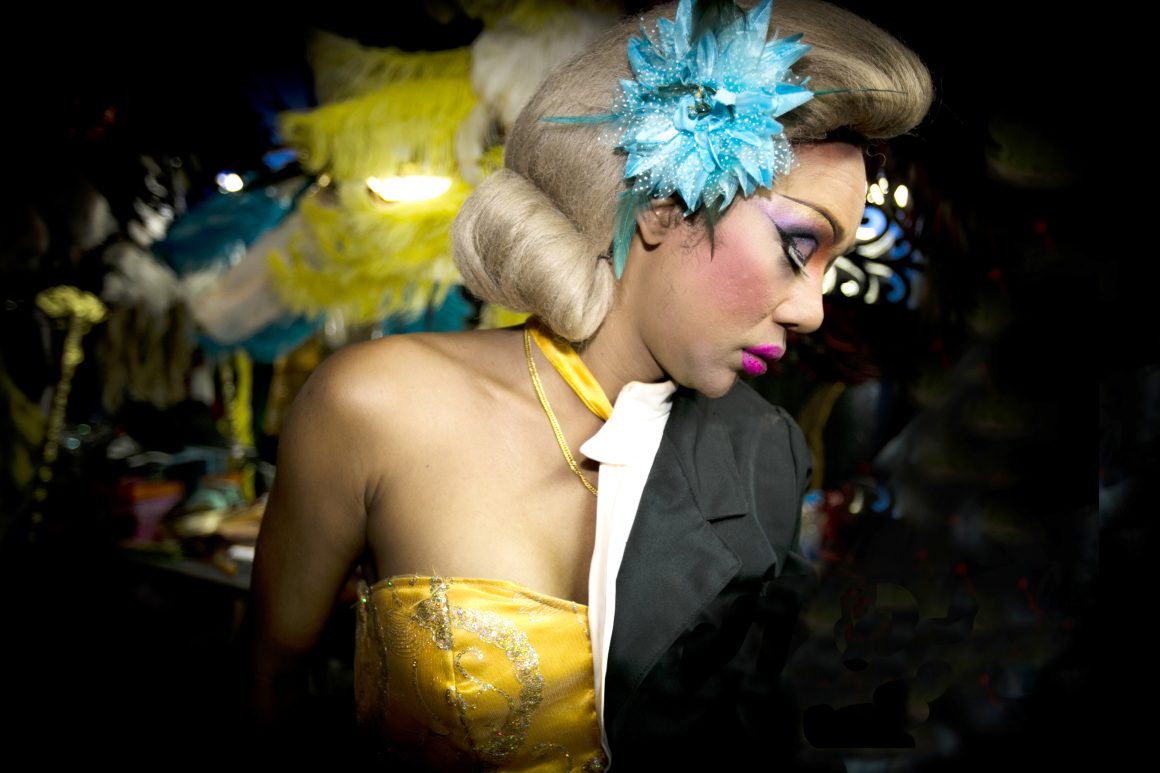
Translife in Asia: A Photographer’s Journey
By Mariah Wilson, March 1 2019
After living abroad for 38 years, Kloie Picot is thrilled to be back in Canada to share the work and stories that she’s gathered over the years. As part of the Exposure Photography Festival, her exhibit, Translife in Asia: A Photographer’s Journey, was featured in the Little Gallery on campus from Feb. 11–22.
Picot is an undergraduate social work student who spent eight years working closely with transgender communities in Cambodia, Indonesia, Malaysia, Myanmar, the Philippines, Singapore, Taiwan and Thailand to document their personal narratives, lived experiences and stories through her lens.
Picot’s work captures very intimate moments within the trans communities that are usually not readily available to a larger audience. When asked how she was able to do this, she said that she was genuine and showed that her curiosity was honest and well-intentioned. Many of the people she photographed have become lifelong friends, she says.
I had the opportunity to hear about the stories of these women through a private tour of the exhibit.

Shintra is an Indonesian transgender woman who Picot found through extensive research prior to going to Indonesia and formed an unexpected friendship with.
“What strikes me about this exhibit and Shintra is that she is a Muslim transgender woman. Her purpose in life now, after winning beauty contests and inheriting her ancestral home, is to make it into a community centre for those wishing to learn the Quran. Trans women don’t have a place to go in the mosque,” Picot says.
In Shintra’s free time, she visits transgender people who suffer from medical problems. Indonesian culture isn’t very accepting of transgender people, resulting in a lack of proper medical care and procedures. By comparison, Thailand has a much more open culture towards transgender people and sex change operations by highly trained medical professionals are quite common in this region.
“In Indonesia, they rely on self-injecting silicone into their faces or body, and they don’t have the proper hormonal balances to keep the feminine look,” Picot says. “So, often in places like Malaysia, Cambodia and Indonesia, women die from overdosing on hormones or when the silicone travels from their body into their organs. These are issues I’ve also talked about in the exhibition.”
Picot is using her exhibit to spread light on a multitude of health and political issues faced by the trans community in Asia. One of the more predominant concerns within the LGBTQ+ community, and especially in the trans community, is contracting HIV. Cindy, one of Picot’s close friends — whose image is featured on the poster for this exhibit — passed away due to HIV complications.
“Trans people, until very recently, at least in Thailand, relied on jobs either in the beauty industry or being showgirls or kathoey in ladyboy shows. And again, they have to always be taking hormones so there’s that aspect of the trans world. The safe medical procedures and the medical procedures that aren’t safe and self-injected,” Picot says.

Even when it comes down to a trans woman’s voice, Picot recounts the extensive measures and procedures trans women go through in order to achieve a feminine sound. Some women undergo speech therapy while others even shave their Adam’s apple.
“There’s a community in Malaysia called Chow Kit, a district in Kuala Lumpur, that is known for transgender sex workers. It’s a little on the lower end. But, I think this area is more safe because the police don’t tend to go there,” Picot says. “Whereas the other area is in the tourist part of downtown Kuala Lumpur, where they get arrested. What happens when you’re trans is that you don’t get charged for being trans, you get caught for cross-dressing.”
Picot says that if an individual gets charged with cross-dressing, they get thrown into a jail that corresponds with their born identity, where they’ll usually experience sexual assault.
Gender dysphoria is another big concern in the trans community, as it is humiliating to members of the trans community when presenting an ID that doesn’t match who they are.
Ultimately, Picot wants her work to be viewed and supported by Calgary’s community — especially its trans community — to open a dialogue on how different things are on the other side of the world. Picot is in the process of creating a book to share her photographs and is hoping to turn this into a travelling exhibit, as there’s been interest across the country to have her work featured.
While leaving the exhibit, Picot pointed out a visitor’s comment that her photography captured a sense of intimacy with the people she photographed and shined light on a lesser-seen side of this community.
“It’s my journey to try to understand and promote equality and equity in all communities,” she says.
